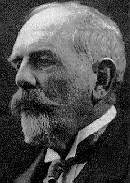|

Arthur Somervell was born in Windermere, in 1863, the son of the founder of K Shoes, and studied in Cambridge,
Berlin and London. He achieved success in his own day as a composer of choral works such as The Forsaken Merman
( 1895) and The Passion of Christ ( 1914) but is now chiefly remembered
for his song cycles such as Maud (after Tennyson, 1898) and A Shropshire Lad (the first known setting of Housman,
1904). His style was conservative, and shows the influence of Mendelssohn and Brahms. He was also active in music education,
and became Chief Inspector of Schools in 1920. influenced the musical and educational life of England over four decades.Though,
as has been noted, remembered today principally as an accomplished composer of songs and choral works, he also worked
for twenty-eight years as one of His Majesty's Inspectors of Schools (HMI), with special responsibility for the teaching of music. Towards
the end of his life Somervell gathered together a number of his articles, in which he expounds a passionate philosophy of
music education, makes candid remarks about musical life and musical education in England, and provides insights into the
sometimes bitter debate with Cecil Sharp about folk song. These collected writings, prepared for publication by Gordon
Cox, were published in 2003, together with some unpublished speeches and letters, enabling musicologists and music
educators to re-evaluate the significance of Somervell's contribution to the musical and educational life of his time.He was
knighted in 1929. He died in 1937.
|
 |
|

